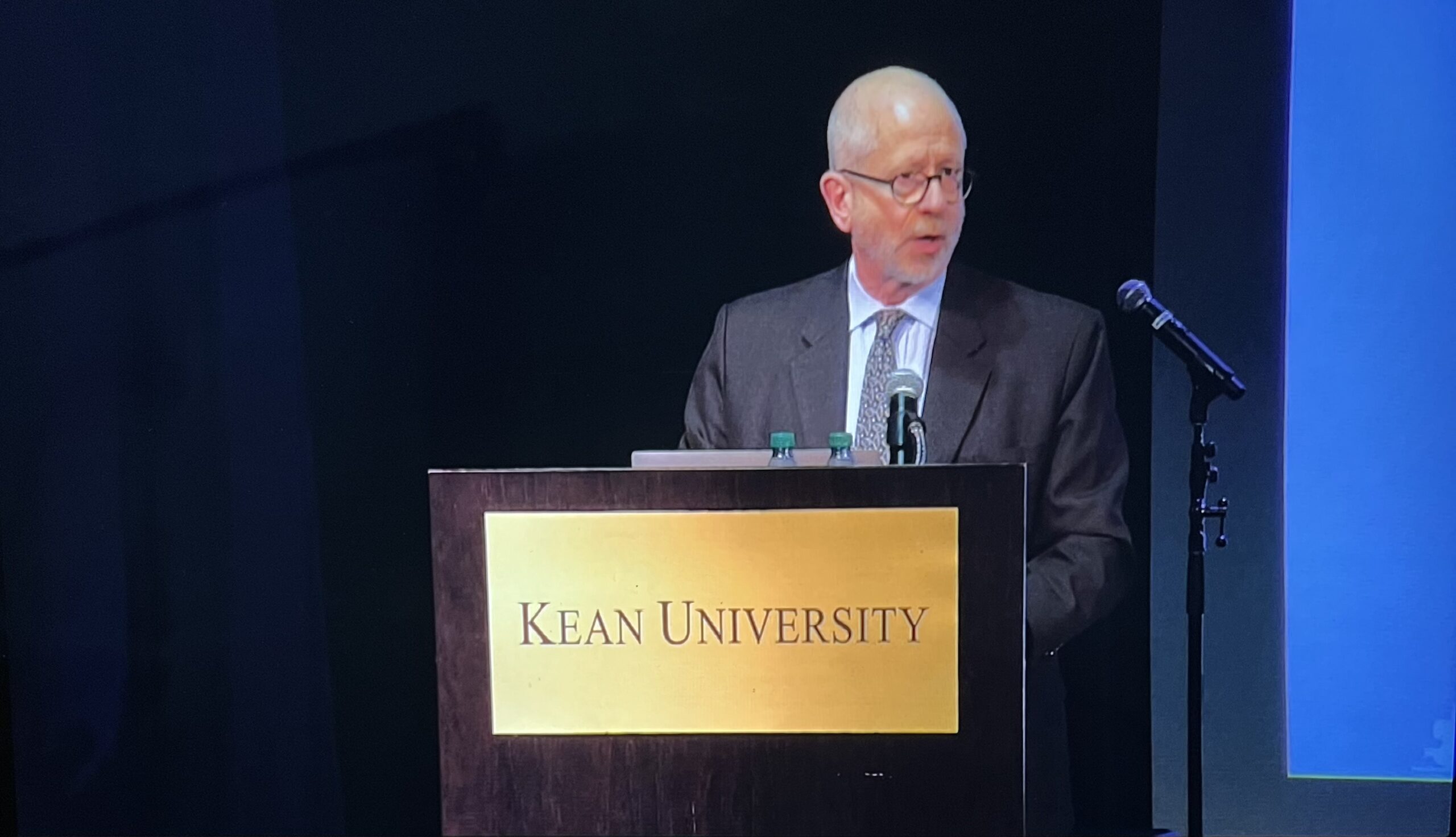By Adaora Nnakwe | Published March 30, 2023

Kean’s provost proposed large-scale changes to the core general education curriculum and major/minor requirements at a presentation of the General Education Task Force that has been studying the university’s offerings.
David Birdsell, Ph.D., provost and senior vice president of academic affairs, said that the proposed plan is based on students’ everyday college experiences and will require a connection between the overall campus experience and the community.
“Think about this as not necessarily today’s curriculum with something laid on the top of it,” Birdsell said, who as provost oversees all academics and faculty at Kean. “Think of this as a new curriculum that allows for broader imagination across the board.”
Birdsell indicated that three main parts will be implemented in the new core curriculum based on inquiry, place, and foreground leveraging students’ experience while making it possible for every student to have a major and two minors. He said the new requirements would mobilize evidence-based practices with academic coursework.
“It [the curriculum] has been shown at many universities over the course of many decades to improve learning retention, degree completion, student satisfaction, and career outcomes,” Birdsell said.
Birdsell said credit requirements for Kean’s majors fluctuate anywhere from about 30 to about 60 credits, and that research shows many courses don’t need to be three credits.

“There is important learning that can take place in the space of a one-credit course experience, which translates roughly to five weeks of a classroom footprint,” Birdsell said. “Maybe some things might be ten weeks of a classroom footprint.”
Once finalized, preparation will start in Fall 2023 with all departments to modify majors for both the credit footprint and pre-requisite courses.
Birdsell concluded that current students and those entering in Fall 2023-24 will remain on the current curriculum program. The implementation of the new GE curriculum is expected for fall 2024.
Professor Rachel Evans, assistant professor, and chair of the GE task force, explained what the curriculum would look like in the classroom for freshmen, using an example of one literary text and how it could be integrated into other GE course requirements such as history, or say sociology. Such a program would involve self-assessments, critical reading of texts, and exploring a wide range of subjects such as history and sociology.
“We’ve chosen as an example of Week Four of the freshmen experience at a time when foundational introductions are complete and the curriculum is starting to move forward into the meat of the students’ studying,” Evans said.

Robyn Roebuck, assistant vice president of academic affairs, reviewed the student population along with the usage of portfolios and rubrics that will be used to determine student learning outcomes.
“We know that this matches our student profile. In fact, we’re finding that it’s going to give our students more agency in dictating where their academic careers go,” Roebuck said.
Roebuck stated that students will be more prepared for internships and research opportunities because they are experiencing experiential learning in the freshmen and sophomore years.

You must be logged in to post a comment.